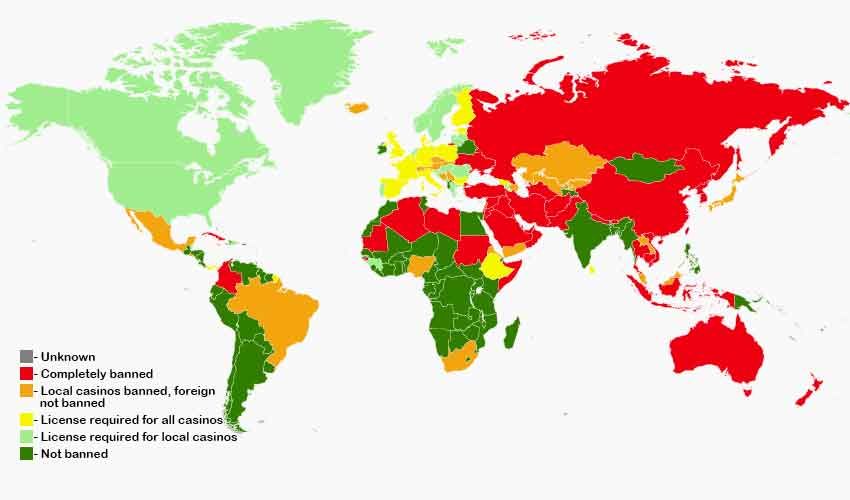As technology continues to advance, so do the laws surrounding online gambling. Each country has its own set of regulations and restrictions when it comes to gambling, and these laws are constantly evolving. This article will explore some of the recent changes in gambling laws by country and how they may impact the online gambling industry.
United States
The United States has had a tumultuous relationship with online gambling over the years. In 2006, the Unlawful Internet Gambling Enforcement Act was passed, making it illegal for banks to process transactions related to online gambling. However, in recent years, some states have started to legalize online gambling within their borders. New Jersey, Nevada, and Delaware are a few of the states that now allow online gambling, with others considering following suit.
Additionally, the Supreme Court overturned the Professional and Amateur Sports Protection Act in 2018, paving the way for states to legalize sports betting. Since then, several states have legalized sports betting, with more likely to follow in the coming years.
United Kingdom
The United Kingdom has some of the most liberal gambling laws in the world. The UK Gambling Commission regulates all forms of gambling in the country, ensuring that operators meet strict standards for fairness and consumer protection. In recent years, the UK has cracked down on gambling advertisements, making it harder for operators to target vulnerable populations, such as minors and problem gamblers.
One of the most significant changes in UK gambling laws in recent years has been the reduction of the maximum stake on fixed-odds betting terminals (FOBTs) from £100 to £2. This change was made in an effort to combat problem gambling and has had a significant impact on the gambling industry in the UK.
Australia
In Australia, the Interactive Gambling Act of 2001 prohibits online gambling operators from offering real-money games to Australian residents. However, there are loopholes that allow Australians to gamble on offshore websites. In recent years, there has been a push to tighten regulations surrounding online gambling in Australia, with some states considering banning offshore operators altogether.
Additionally, the Australian government has introduced measures to combat problem gambling, such as the introduction of a national self-exclusion register. This register allows individuals to voluntarily ban themselves from all online gambling sites, providing a tool for those struggling with addiction to help themselves.
China
China has some of the strictest gambling laws in the world. All forms of gambling are illegal in mainland China, with the exception of state-run lotteries. However, Macau, a special administrative region of China, is known as the “gambling capital of the world” and is home to numerous casinos and gambling establishments.
In recent years, China has cracked down on illegal gambling operations, both within its borders and abroad. The Chinese government has made efforts to track down and prosecute those involved in online gambling operations targeting Chinese citizens, leading to a decrease in the number of illegal gambling sites available to Chinese players.
Conclusion
As the landscape of online gambling continues to evolve, so do the laws and regulations surrounding it. Each country has its own set of rules and restrictions when it comes to gambling, and these laws are subject to change at any time. It is essential for both players and operators to stay informed about the latest developments in gambling laws to ensure compliance and responsible gambling practices.
Ultimately, the goal of gambling laws is to protect consumers and prevent problem gambling. By staying up to date on the latest changes in gambling laws by country, players can ensure that they are participating in a safe and regulated environment, while operators can continue to provide a secure and enjoyable experience for their customers.

